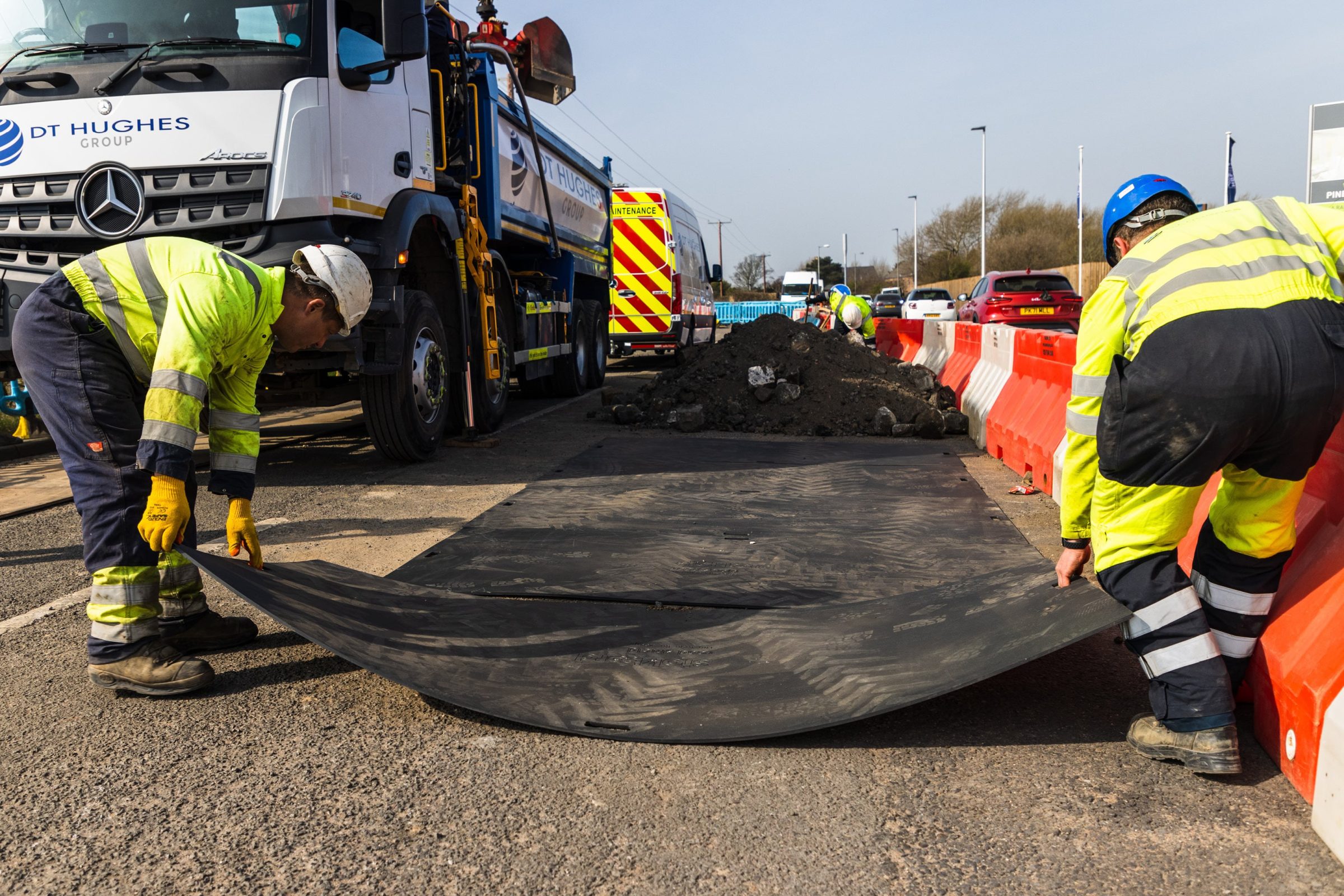
Should you be opting for a plastic plywood alternative?
Plywood has long been the material of choice for industries looking for an affordable, durable and versatile building solution. However, recent factors including the COVID-19 pandemic, the war in Ukraine and the increase of wildfires in North America have meant that plywood has become more difficult to obtain. Additionally, labour shortages and increased supply chain costs have forced suppliers to increase their prices, so the plywood that is available is much more expensive than it was just a few years ago.
In light of these purchasing barriers, many businesses are turning to alternative materials. These can include other wood-based products like MDF or particle board, but what about a plastic alternative to plywood? Read on to find out some of the main benefits of working with a plastic plywood alternative, such as our 100% recycled plastic Stokbord® product range.
No-fuss water resistance
One of the main drawbacks to plywood is its lack of water resistance. While it can be treated to hold up better against water, heavy rain or wet environments can cause breakage in the material or encourage rot and mould growth. Waterlogged plywood can also warp and bend, jeopardising its durability. For industries that often operate outdoors, like construction, this can quickly become an issue and require frequent maintenance or replacement.
Plastic, on the other hand, is a much more water resistant material that offers better protection for outside use. It doesn’t hold moisture, making it less susceptible to rotting, and keeping the material stronger for longer. Stokbord® Road Shield, for example, is a great alternative to plywood for offering surface protection. Perfect for use even in wet weather, it offers durable protection for roads, pavements and highways during periods of construction or other potential damage.
Keeping it simple
Plywood is generally considered one of the most straightforward materials of its kind to work with, but this isn’t necessarily the case. Due to the moisture absorbing qualities of wooden materials, it can be difficult to use adhesives on plywood and often requires multiple, thick coats to ensure adhesion. As plastic doesn’t absorb moisture in the same way, applying adhesives is a much simpler process when using a plastic plywood alternative.
The main reasons that plywood is considered a user-friendly material include its weight and durability – it offers significant strength when compared to its lightweight feel, making it an effective choice. However, plastic alternatives to plywood can actually weigh even less and offer a more sturdy result, such as Stokbord® Ground Shield. Plus, plastic alternatives are just as rigid and easy to work with as plywood, drilling and cutting with the same level of ease as the more traditional material.
Better for you, better for the planet
Plastic products aren’t often thought to go hand in hand with environmental responsibility, but advances in manufacturing mean that this perception isn’t always the case. Centriforce products are made from 100% recycled plastic, helping to improve damage prevention without harming the environment.
Furthermore, plywood is less environmentally friendly than you might think. Of course, it requires the unsustainable practice of cutting down trees, which can be very harmful to the planet. However, the process of turning raw wood into plywood is also potentially damaging. The finished material is made by bonding together wood veneers using adhesives, which typically contain formaldehyde. This chemical breaks down in the atmosphere to create formic acid and carbon monoxide, and can be especially dangerous for wildlife and animals.
Plastic v plywood: Who wins?
As many industries deal with the current supply chain issues surrounding plywood, it’s up to individual businesses which route they go down to ensure they can continue to work safely and effectively. Many of the plywood alternatives are made of wood themselves, such as MDF and particle board, and also subject to supply problems due to wildfires. Recycled plastic sheets are unique in that the raw materials are in ample supply, without compromising on durability, quality or sustainability.
Want to find out how our recycled plastic products could offer your business a stronger alternative to plywood? Get in touch with our team of experts for more information.
